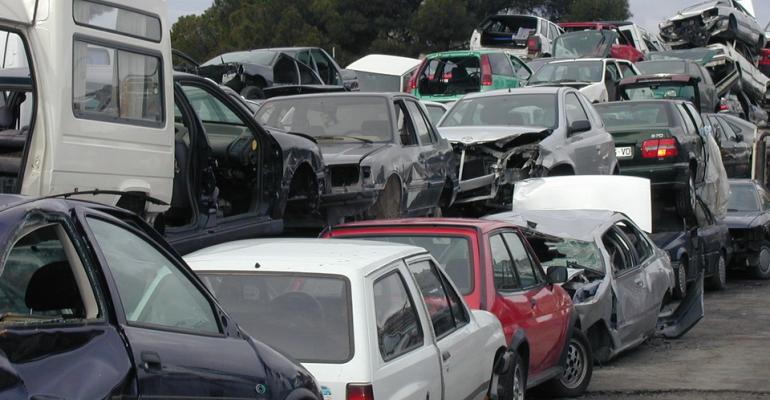MADRID – A new study singles out one of the numerous cash-for-clunkers schemes financed by the Spanish government since 1994 as an economic and environmental failure.
The report, “Evaluation of Subsidies Programs to Sell Green Cars: Impact on Prices, Quantities and Efficiency,” was authored by researchers Juan L. Jimenez, Jordi Perdigueras and Carmen Garcia of Barcelona and Gran Canaria universities and published in the April issue of Transport Policy, the official journal of the World Conference on Transport Research Society.
The study analyses the 2000E Plan, a 2009 government initiative which, like schemes launched before and since its adoption, offered financial incentives to consumers purchasing new cars in hopes of stimulating auto sales, creating jobs, increasing tax revenues and taking older vehicles with lower fuel efficiency and higher emissions off the roads.
The report finds automakers increased new-vehicle prices an average €600 ($690) while 2000E was in effect and the plan generated no increase in car sales. In weighing the cost of government incentives against the intended benefits of reduced emissions and increased tax payments, the researchers say the plan would have been profitable had it boosted demand at least 29%, but car sales rose only 9% while it was in effect.
In addition, each ton of carbon dioxide not emitted while 2000E was in effect cost taxpayers €600 but CO2 emissions credits cost €14 per ton on the international market.
The researchers conclude the net negative impact of the 2000E Plan in environmental terms was €300 million ($345 million). The authors and some other analysts consider it likely other cash-for-clunkers schemes had similar negative results.
Pro-Environment Argument a Green Fig Leaf?
To avoid the risk of unfair-competition sanctions from the European Commission, all of the schemes have been presented as primarily designed to replace older vehicles with safer, more efficient and less-polluting new ones.
Automakers have joined the government in bankrolling the subsidy programs, spending a combined €890 million ($1.02 billion) on the first seven versions of the Incentive Program for Efficient Vehicles (PIVE); the eighth version is scheduled to expire in June. The subsidies in theory retired 890,000 older vehicles and generated €2.54 million ($2.9 million) in sales and registration taxes, according to ANFAC, the principal Spanish association of automakers.
The programs have not been free of scandal. It was discovered during the fifth version of the PIVE scheme that older vehicles already scrapped under earlier plans were being purchased at junkyards and returned to plan administrators, sometimes after only a few days, to receive additional subsidy payments. In some cases the same scrapped vehicle was used several times for different cash-for-clunkers operations.
In lobbying for new or continued cash-for-clunkers plans, the auto industry consistently denies critics’ claims it has become addicted to the subsidy programs and argues the added tax revenues and increased employment in effect cost taxpayers nothing.
“The PIVE plan is an investment, not a ‘drug’ for the market,” Christophe Mandon, CEO of French automaker Peugeot Citroen PSA Group for Spain and Portugal recently told journalists, adding he hoped the government would extend the current PIVE Plan.
Indeed, the industry is concerned the political incertitude in Spain in the run-up to the June 26 general election jeopardizes the launch of yet another edition of the cash-for-clunkers program – the ninth of its kind.
“We do not have a government with which to speak, with which to negotiate the continuity of the PIVE scheme,” says Leopoldo Satrusteguir, general manager-Hyundai Spain.





